What are plastic conduit pipe and hose cutters made of? |
||||
| Shop for Conduit and Hose Cutters | ||||
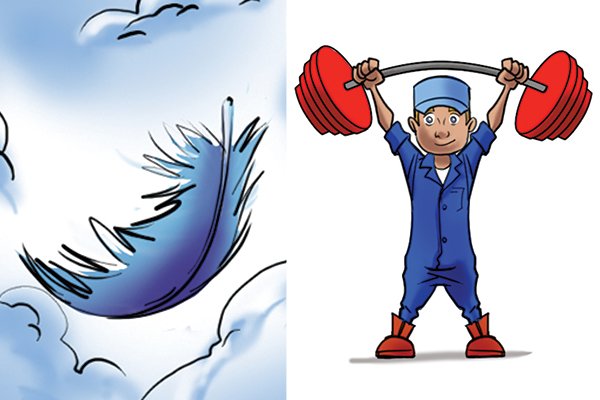 |
Plastic conduit pipe and hose cutters are designed to be tough enough to cut through the tubing within their specification, but still be light enough to be transported easily.You will find that the materials used to make the cutters will differ between models, this is because some hose cutters are designed to cut tougher plastics than others. The strength of the tool, and the material it is made from are likely to be reflected in the price. | |||
Body |
||||
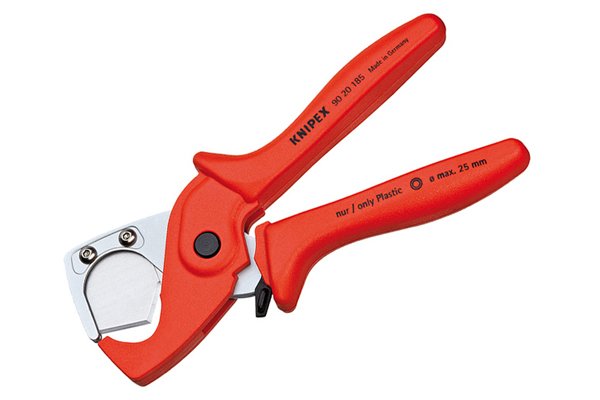 |
The main body of plastic conduit pipe and hose cutters will usually be made from either; aluminium, zinc, durable nylon or fibreglass reinforced plastic. These materials are all fairly durable and corrosion resistant. They are also lightweight, which makes the tools easy to carry. | |||
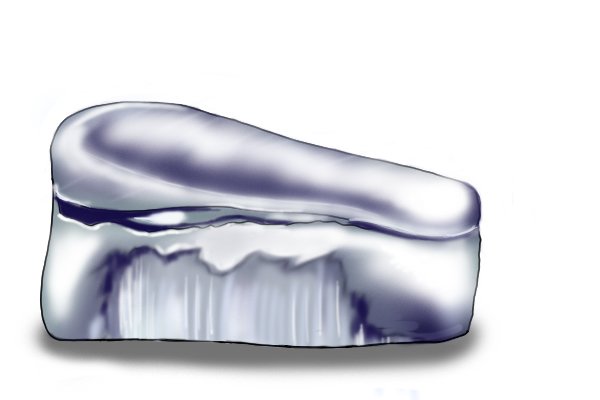 |
AluminiumAluminium is a lightweight material which does not match zinc, steel or fibreglass in its strength. It can withstand most corrosion but can be damaged or deformed quite easily by impact. |
|||
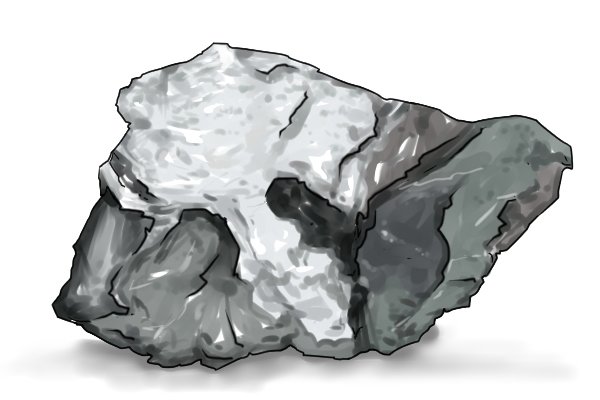 |
ZincZinc is stronger than aluminium and can take more impact without damage, yet it matches it in corrosion resistance. It is an alloy which can easily be moulded into exact shapes, this means it can be used to create more precise parts. However, it is more expensive than aluminium and nylon and is the heaviest material. |
|||
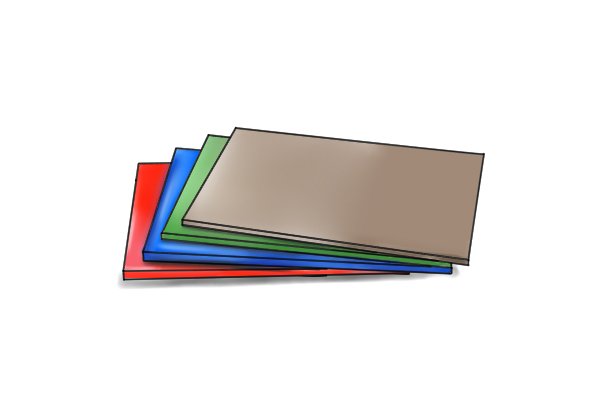 |
Tough nylonNylon can be used to form a tough plastic which is resilient to abrasions and weathering. It is very lightweight, inexpensive and, compared to its density, it is quite strong. However, compared to the other materials it is the weakest and can melt if exposed to high temperatures. Nylon is a fairly cheap material to produce. |
|||
 |
Fibreglass reinforced plasticAlso referred to as fibre reinforced plastic (FRP), glass reinforced plastic (GRP), or simply fibreglass. Fibreglass reinforced plastic is a polymer matrix resin which is given extra strength from fibres of glass. The glass adds the strength, but as it is in small fibres it still has some flexibility. Fibreglass is lighter than aluminium, but can be as strong as steel, and is impact resistant. It is also impervious to most corrosive materials and will not melt if exposed to high temperatures. It can be quite an expensive material. |
|||
 |
Which material to choose?Zinc will be the heaviest material, but should be the strongest, although it may be expensive. Fibreglass is likely to be the most expensive material. It is very tough and impact resistant while remaining very lightweight. Aluminium should be fairly cheap, but not as tough as zinc or fibreglass and will not have much impact resistance, it is likely to easily damage if dropped or put under too much strain. Nylon should be the cheapest material but the weakest, and it will have limited heat resistance. |
|||
Blade |
||||
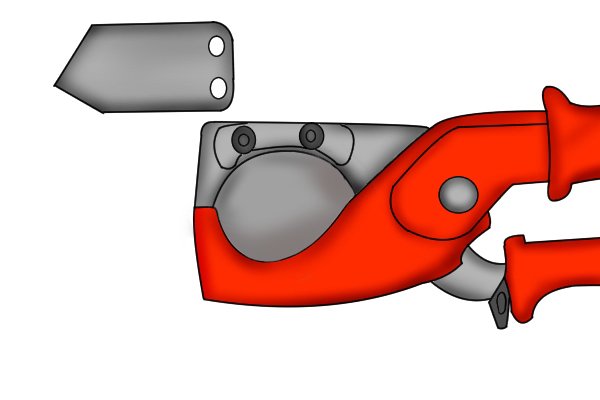 |
The blade will be made from steel, usually steel which has been hardened, this gives it the extra strength to cut the required material. Other blades may be made from stainless steel which is resistant to corrosion. | |||
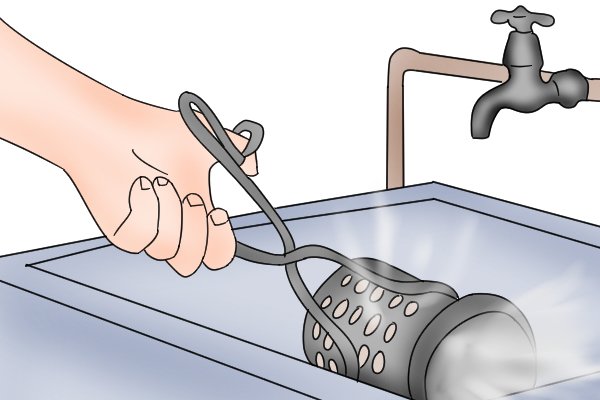 |
Hardened steelSteel is a tough material and once it has been hardened it is even stronger. Steel is hardened by being heated to a specific temperature, depending on the chemical structure of a particular steel, and then cooled in a fluid. |
|||
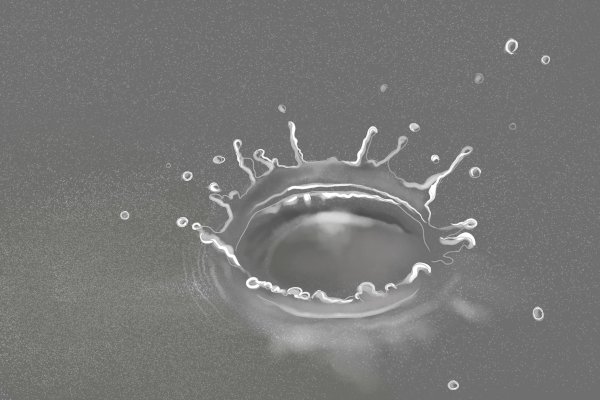 |
The fluids steel can be cooled by include: air, water, oil, as well as various other liquids. Oil is often used when hardening blades and knives, as it will cool the metal slower than water; this reduces the chance of the metal cracking. | |||
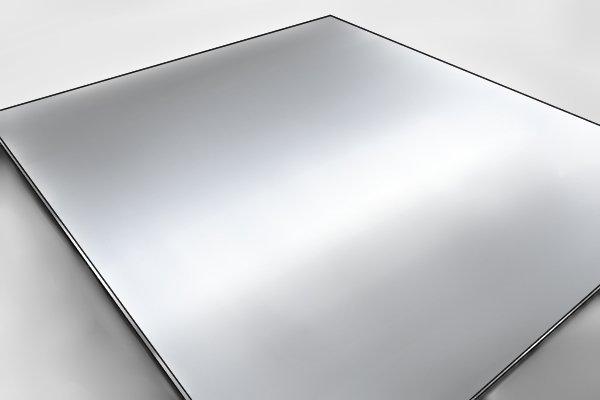 |
Stainless steelHardened steel will be stronger than stainless steel, and should cut tougher materials, however, stainless steel is more resistant to corrosion. |
|||
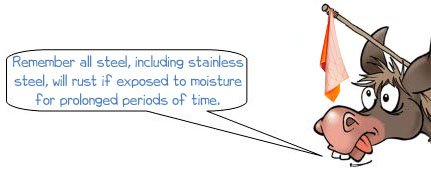 |
||||






